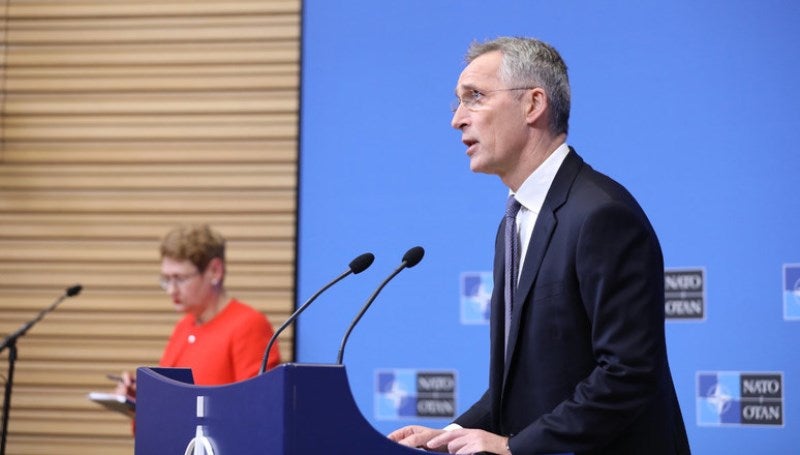
The survey found that of 5,208 respondents 62% think that while NATO is still relevant to the defence of its member states, the organisation needs an overhaul to be more effective. 20% of readers said that the organisation was relevant in its current form, whereas 18% disagreed.
NATO has been the subject of a number of statements from world leaders questioning its effectiveness, with French President Emmanuel Macron claiming the organisation was ‘brain-dead’ and US President Donald Trump criticising European contributions to the organisations.

Discover B2B Marketing That Performs
Combine business intelligence and editorial excellence to reach engaged professionals across 36 leading media platforms.
Relations within the organisation have also been strained by Turkey’s growing closeness to Russia and its decision to buy the Russian S-400 Air Defence system, resulting in the country’s expulsion from the F-35 programme.
Our poll asked ‘Is NATO still relevant for the defence of member states?’; 1,067 responded ‘Yes in the current format’, 3,214 responded ‘Yes, but it is in need of an overhaul’ to be more effective and, 927 responded ‘No’.
At last December’s NATO Engages event, leaders from across the alliance accepted that the organisation needs to adapt to new threats and develop a response to emerging threats of hypersonic missiles and cyberwarfare.
Speaking at the event, UK Defence Secretary Ben Wallace said: “Today we face new challenges, and in keeping with our best traditions we must continue to adapt. Traditional warfare has changed. The threats are no longer only conventional, no longer only overt. Our adversaries are striking from the shadows.

US Tariffs are shifting - will you react or anticipate?
Don’t let policy changes catch you off guard. Stay proactive with real-time data and expert analysis.
By GlobalData“They are pursuing new tactics to divide and destabilise, exploiting new technologies to exacerbate the uncertainties of an uncertain world, and undermine our way of life.”
Despite the event taking place shortly after Macron’s criticism, Wallace said that the organisation was the still most effective tool for the defence of its members adding that a collective response to modern challenges would assert NATO’s power.
Wallace said: “We must stand together, no side deals, no separate voices. Our adversaries strive for that division; they fund that division and target that division. We will not let them succeed.”
In recent years, European NATO allies have sought to step up their contributions to the organisations in the face of US pressure to share more of the burden. According to the International Institute of Strategic Studies (IISS) report The Military Balance 2020, around two-thirds of allies are aiming to reach the recommended 2% of GDP by 2024.
NATO is also funnelling money into research and development to maintain its edge and adapt to new threats, with NATO Secretary General Jens Stoltenberg in the past saying that the organisation was pushing for 20% of budgets to be spent on research and development.
While NATO has responded to new challenges internal debates continue to be discussed on what the biggest threats to the alliance are. In the past Macron has claimed it is terrorism, while members in Eastern Europe say it is the increasing activity of Russia and the annexation of areas of Georgia and Ukraine.
In response to Russia, NATO has stepped up its presence in Eastern European states to maintain a strong deterrent force.



